The Blue Suitcases: Memory’s Folds and the Scent of Old Cedar
When nostalgia shows up duct‑taped and vinyl blue, it’s not here to comfort you — it’s here to ambush you.
If you believe in the importance of free speech, subscribe to support uncensored, fearless writing—the more people who pay, the more time I can devote to this. Free speech matters. I am a university professor who was just fired for criticising Hamas - so I am not speaking from the bleachers.
Please subscribe to receive at least three pieces /essays per week with open comments. It’s $6 per month, less than USD 4. Everyone says, "Hey, it’s just a cup of coffee," but please choose my coffee when you come to the Substack counter.
Cheers.
This week, two blue vinyl suitcases appeared on my porch. They were duct‑taped — which is, of course, what you do with cheap luggage when you don’t trust the zippers. Two silver straps were also cinched tight around each, ending in thumbnail‑sized knots where the tabs met. They were vintage pre‑wheel relics: big‑buckled 1970s beasts of Soviet utility, offering all the charm of a municipal bus depot.
I had no idea where they’d come from.
My address was slapped on Canada Post labels, so I assumed some misdelivered lost‑luggage courier had bungled the job. But then I saw it: the luggage tag, tucked into its cracked vinyl sleeve, carried my late mother’s handwriting — instantly, gut‑wrenchingly familiar. That curve of her “F,” the way she leaned into a final “n” — unmistakable, even after 40 years of her being gone.
I phoned my twin brother in Winnipeg. Yes, he said, they were meant for me.
Long before my father died — over a year ago — he had moved into my childhood room. He couldn’t bear to return to the bed he’d shared with my mother. My brother was now emptying drawers, boxing memories, dispatching the flotsam of a life.
On the first anniversary of Dad’s death — forgive me, but I won’t call it “passing”; there’s still some Dylan Thomas rage in me — my daughter and I flew to Calgary, rented a car, and drove to Vulcan, Alberta, to put flowers on his grave.
His modest flat marker was buried under snow; without context, we scraped away ice with windshield scrapers and our boots, locating him more by memory than map. He was buried next to my mother and near my grandparents and so many last names I knew; my great-grandfather John was there, born before the American Civil War.
If grief was a giant balloon hanging over me, surely this pilgrimage should have let out some of its stench — or at least changed the smell.
But today, when I unbuckled the suitcase, grief came roaring back, thick and sour.
Inside were brown manila envelopes, each tagged in my father’s precise professorial script. These weren’t just objects; they were notifications that the distance between my childhood and today wasn’t as long as it seemed: schoolwork, letters I’d sent home from France, mementoes. I could open an essay I’d written at seven and recognise it instantly — the loops of the penmanship, the cheap paper, even the cadence of my thinking. I remembered writing it.
It was mine, not in some vague genealogical sense but viscerally: as if I’d written it yesterday.
Psychologists call this autonoetic consciousness — the mind’s peculiar ability to time‑travel, to re‑inhabit the emotional and sensory context of a memory. You don’t just recall; you relive.
And nostalgia — literally “homecoming pain” from the Greek nostos (return home) and algos (pain) — was originally diagnosed in 17th‑century soldiers aching for a home they could never truly return to. That’s what struck me as I sifted through these artefacts: not sentimentality, but a wound reopening.
A small tin labelled “Keepsakes” — a word so unfashionable it now feels sacred — held spools of thread and a pencilled scrap from my grandmother about her mother:
“Where Mum stopped her sewing. Don’t break the thread. 1922.”
It was my grandmother referring to her mother.
My grandmother has been gone for forty years, yet her script summons her instantly.
A stiff red canvas pencil case commemorating the 1939 visit of George VI and Elizabeth to Canada — zipper frozen for sixty years. Third‑grade papers with pale blue Gestetner rubrics and red‑ink scoldings: “Needs improvement.” My myth of straight‑A childhood crumbled in real time; apparently, my parents (or I) had curated the past, quietly discarding the Fs and hoarding the fiction.
Birthday cards I’d made for my father — crayon balloons, exclamation marks, unselfconscious love. Photos of my daughter as a baby, my son as a toddler. Their cards to Grandpa, stuck together with jam and innocence.
The second suitcase was worse: my teenage poetry. Bad poems. Heroically bad poems. Dead Sea‑level salinity of overwrought emotion, published in school literary journals, desperate to fill space.
And then — the play.
I was a character called Dirty Walt of the Peatbog, but the title of the play has been ripped away, and I can’t recall.
It was grade two. We rehearsed for weeks in the school gym, our voices bouncing off cinder‑block walls. I still know the lines, muscle memory etched deeper than any adult job interview. A theatre man told my father after a dress rehearsal, “You’ve got one real actor in the group.” My father repeated that compliment for years, and I glowed every time, knowing I’d pleased him.
There was also the famous hockey player Bobby Hull’s autograph — folded, fragile. My memory of Hull’s toupee lifting mid‑game at the old Winnipeg Arena is still sharper than any goal he scored. A clipping of my baby hair, saved like some medieval relic. A carved wooden car made by my uncle‑cousin, an Albertan farmer who could fix anything with baling wire and determination.
These artefacts mean little to my children; nostalgia is not hereditary.
But for me, they are now small detonations. Memory is not a photo album we flip through at leisure; it’s an unruly force, looping, recursive, and booby‑trapped. Time is not linear; it folds. The smell of old paper, the slant of a handwritten “R,” the creak of a buckle — these are triggers, catapults. Suddenly, you’re twelve, standing on a school stage in a paper crown, your father beaming in the audience. The intervening decades collapse.
Chekhov understood this: the smallest details — a worn sleeve, a sound in another room — are where longing and loss reside. The ordinary becomes unbearable.
I placed the brass miniature phonograph and the carved car on the mantle—symbols, not shrines. The rest — the heavy blue suitcases — I buckled tight and shoved under the stairs.
I am afraid to open them again. Nostalgia, once sweet, has soured. My father’s death has altered the chemistry: what was once “homecoming pain” is now simply pain.
It isn’t the objects that wound — not the pencil case, nor the bent report cards, nor even the brittle play script from a third‑grade stage. It’s the notes in his handwriting, those small scrawled margins where he named and dated what he thought might matter someday.
They tether me to a past that feels achingly present — a quiet proof that he noticed, that he kept me. The grief in these suitcases does not fade so much as change its smell; sharp at first, now sweeter, like old cedar.
I am grateful for this ache, even as it steals my breath — grateful that a good man lived, that he loved enough to keep the birthday cards my children made him, sticky with glue and glitter.
His life, folded into envelopes and taped tins, whispers back across decades: you were seen, you were loved. And so I close the suitcases and slide them under the stairs — not to forget, but because memory itself is alive, and I will open them again when I am ready to be pierced by it.
If you found value in this article and wish to support my ongoing work, especially during my 18-month suspension, please consider leaving a tip. Your support helps me continue producing uncensored content on critical issues.



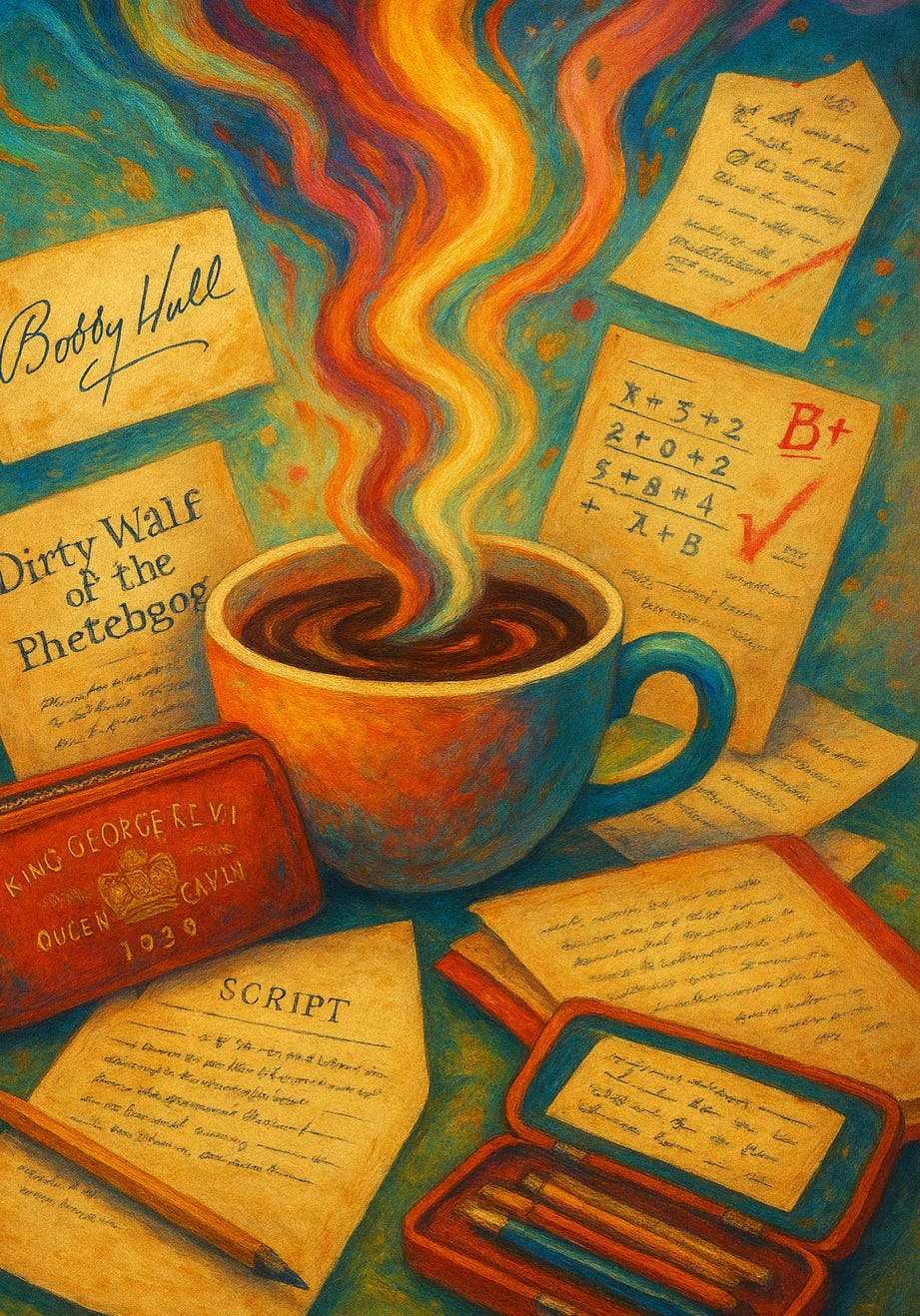
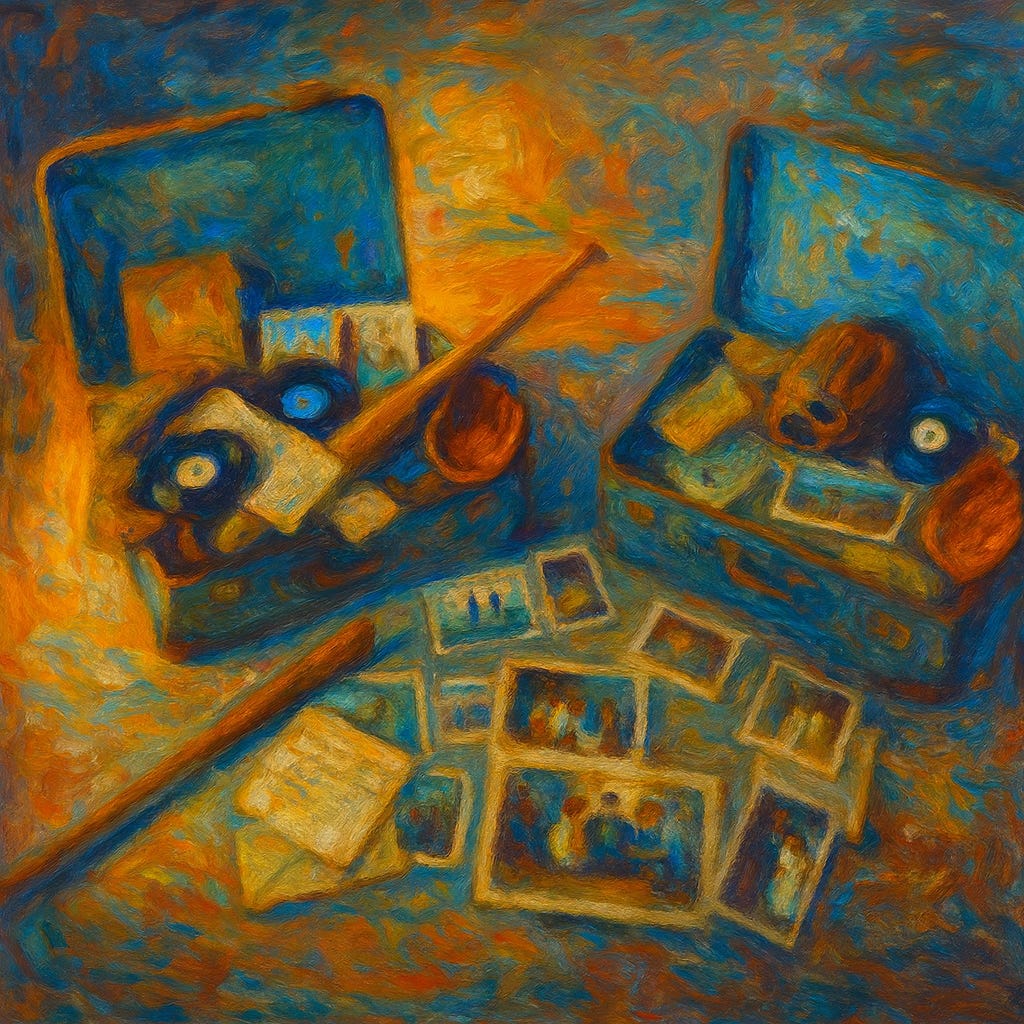
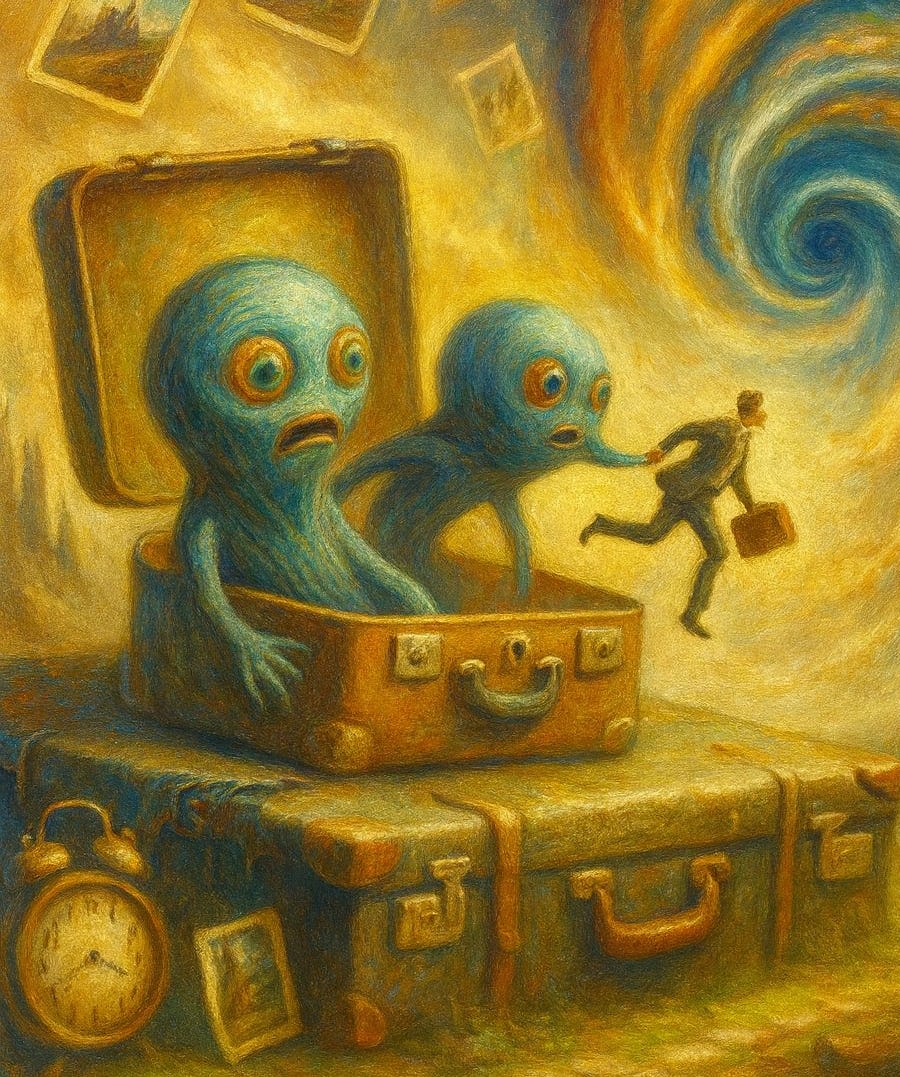
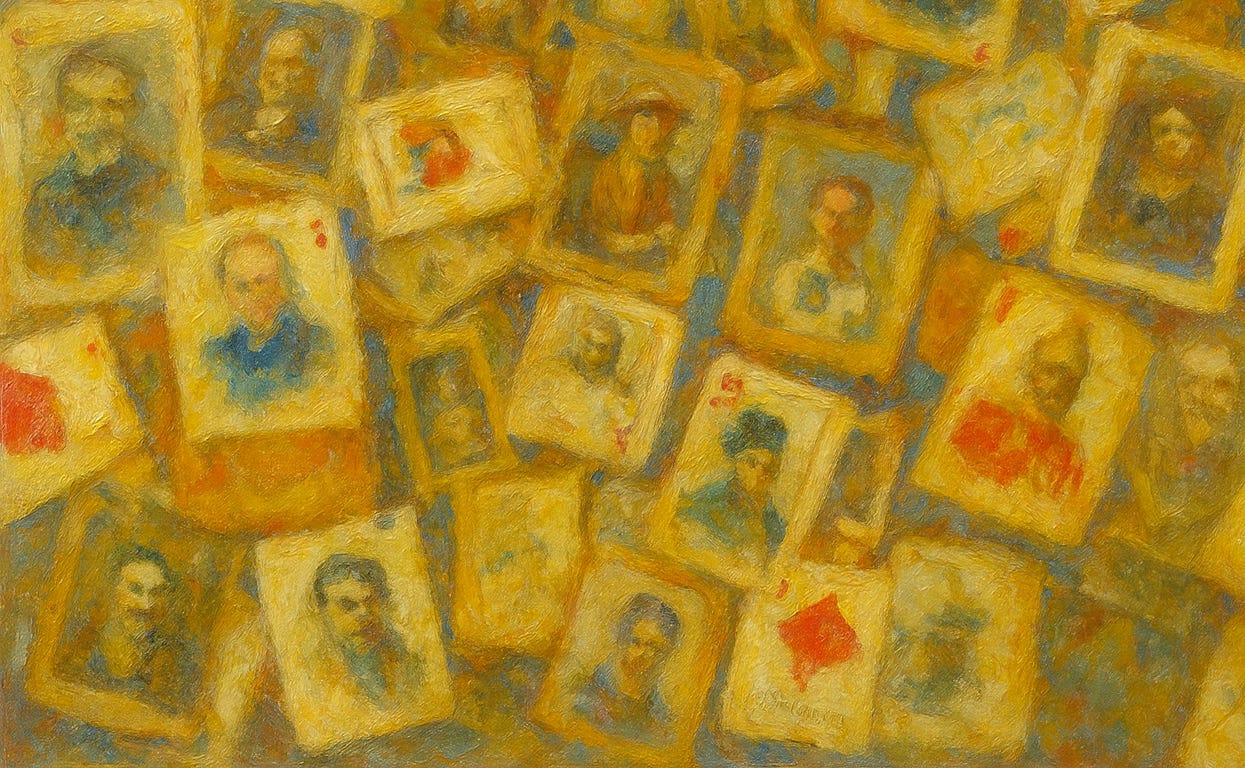
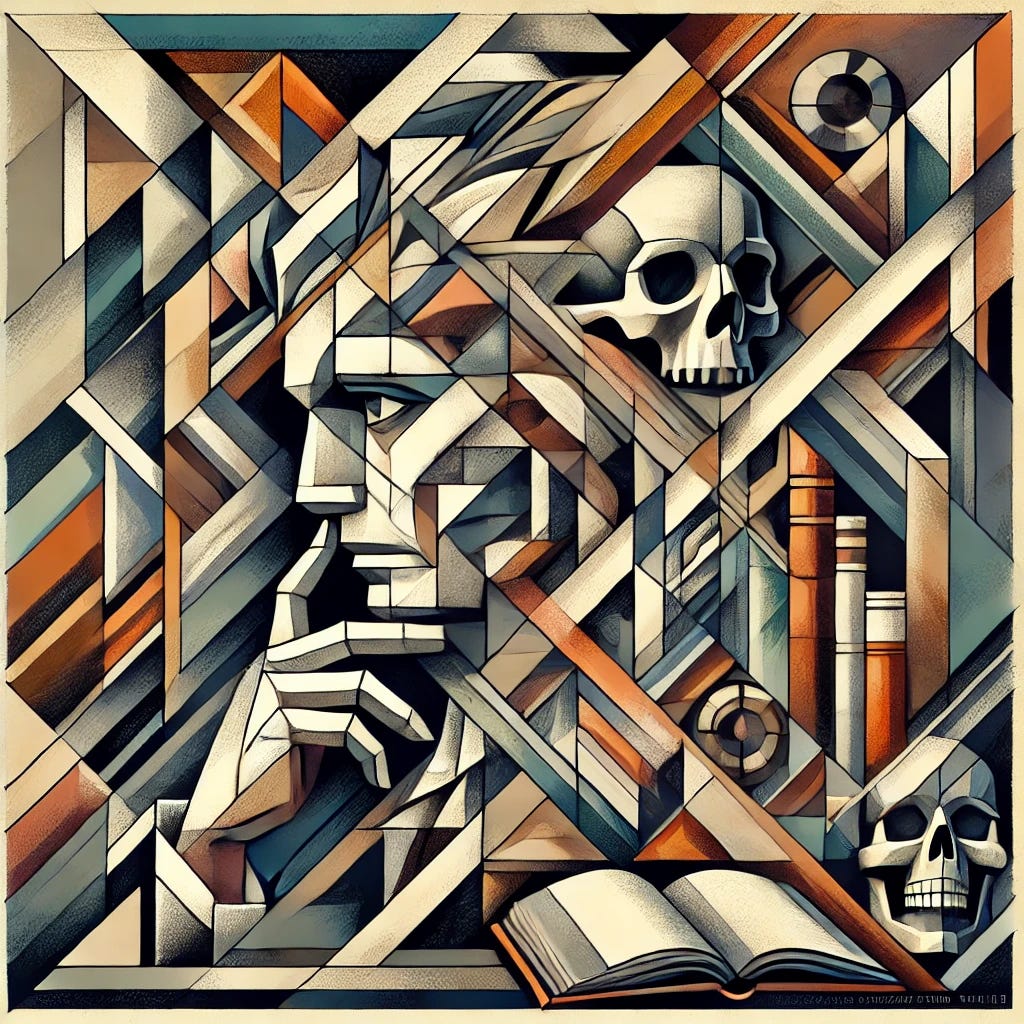
I am smiling reading this, holding the baby after her little big brother bothered her so I picked her up and kept reading and her big big brother kissed her on the head while in my arms and that made her fuss too and I kept reading.